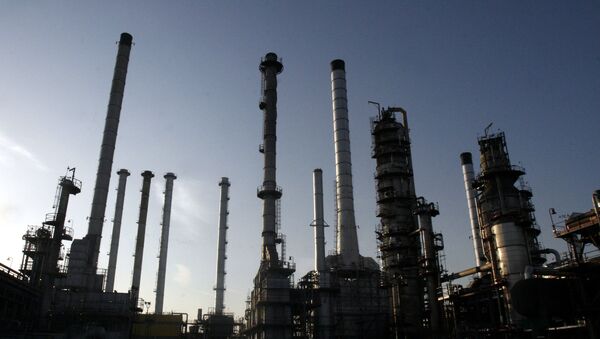French Foreign Minister Jean-Yves le Drian has stated that talks on a credit arrangement worth about $15 billion, which would be guaranteed by Iranian oil revenues, were proceeding, but the plan would depend on US approval and re-issue of oil export waivers.
The idea is "to exchange a credit line guaranteed by oil in return for, one, a return to the JCPOA... and two, security in the Gulf and the opening of negotiations on regional security and a post-2025 [nuclear programme]", Jean-Yves le Drian told reporters, adding "All this (pre)supposes that President Trump issues waivers".
Over the past several months, Iran and France have been actively engaged in consultations concerning the JCPOA deal, including phone talks between the presidents and reciprocal high-level visits.
Le Drian has also stated that several problems were still blocking a French-led attempt to save the landmark 2015 accord limiting Iran's nuclear programme.
"There is still lots to work out, it's still very fragile", Le Drian said.
Relations between the United States and Iran have been in a downward spiral since Washington unilaterally withdrew from the 2015 Iran nuclear agreement last spring. The United States has since proclaimed it intends to bring down Iran's sale of oil to zero and has reintroduced sanctions on almost all major sectors of the Middle Eastern nation's economy.
The situation worsened over recent months following a series of attacks on commercial tankers in the Gulf of Oman and Strait of Hormuz, for which the United States and its allies have blamed Iran. Tehran has denied all accusations of involvement in the attacks.
The JCPOA was signed in 2015 by Iran, China, France, Germany, Russia, the United Kingdom, the United States, and the European Union. It required Iran to scale back its nuclear programme and severely downgrade its uranium reserves in exchange for sanctions relief. In 2018, the United States abandoned its conciliatory policy on Iran, withdrawing from the JCPOA and hitting Iranian petroleum industries with sanctions.



